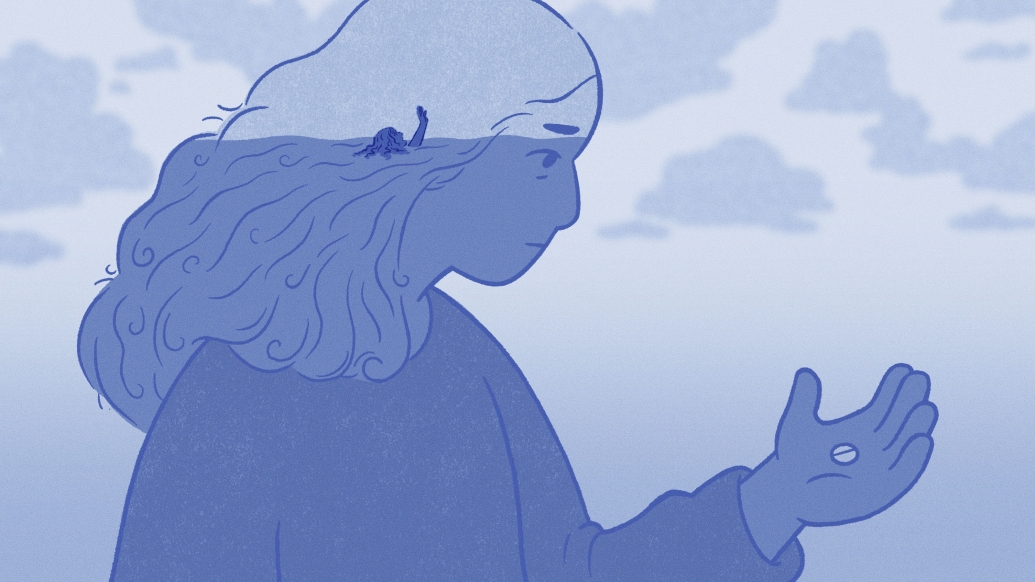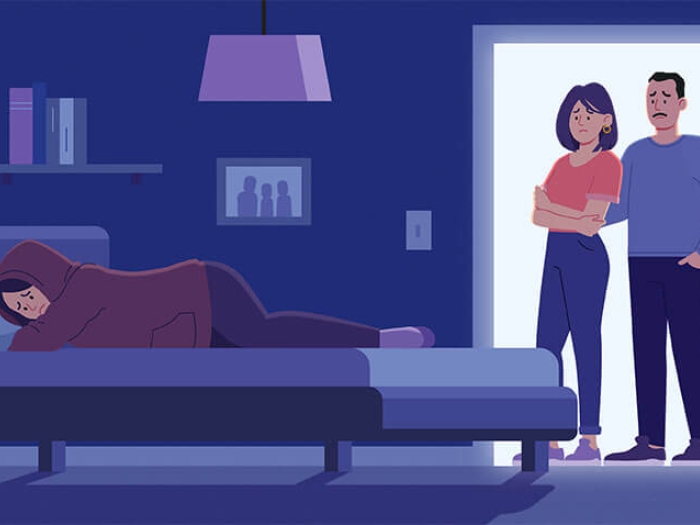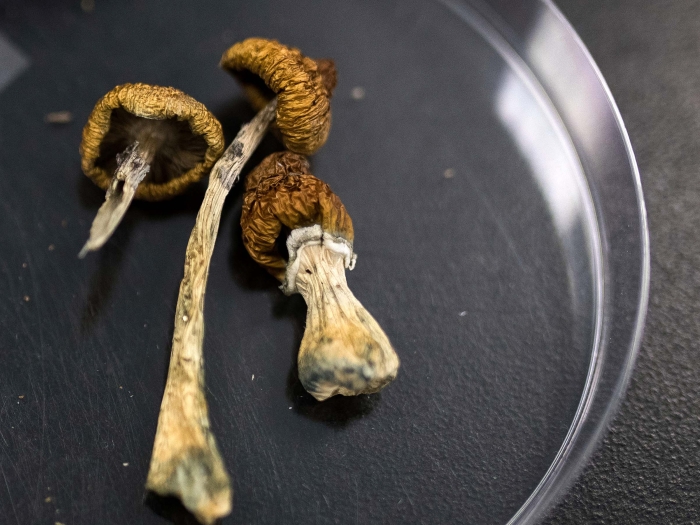Rate of antidepressant dispensing to young people rose faster after March 2020, especially among females
5:00 AM
Author |

Antidepressant dispensing to adolescents and young adults increased sharply after the COVID-19 pandemic began – particularly among females – a new study finds.
While a growing number of young people ages 12 to 25 were receiving antidepressants before the pandemic, the antidepressant dispensing rate rose nearly 64% faster after March 2020, according to Michigan Medicine led findings in Pediatrics.
“Antidepressant dispensing to adolescents and young adults was already high and rising before March 2020. Our findings suggest these trends accelerated during the pandemic,” said lead author Kao Ping Chua, M.D., Ph.D., a pediatrician and researcher at University of Michigan Health C.S. Mott Children's Hospital and the Susan B. Meister Child Health Evaluation and Research Center.
Increase driven by females
Researchers analyzed data from a national database representing 92% of prescriptions dispensed in U.S. pharmacies. They found that the increase in the antidepressant dispensing rate during the pandemic was driven by females.
After March 2020, this rate increased 130% faster among female adolescents ages 12-17 years and 60% faster among female young adults ages 18-25 years.
“Multiple studies suggest that rates of anxiety and depression among female adolescents increased during the pandemic,” Chua said.
“These studies, coupled with our findings, suggest the pandemic exacerbated a pre-existing mental health crisis in this group.”
Male adolescents
In contrast to females, the antidepressant dispensing rate changed little among male young adults after March 2020 and declined among male adolescents, which Chua found surprising.
“It’s hard to believe this decline reflects improved mental health,” he said.
He believes a more likely explanation is that male adolescents may have skipped physicals and other health care visits during the pandemic, decreasing opportunities to diagnose and treat anxiety and depression.
The transition away from in-person learning, he notes, may have also decreased opportunities for teachers and other school staff to detect mental health problems in male adolescents.
Antidepressant dispensing to adolescents and young adults was already high and rising before March 2020. Our findings suggest these trends accelerated during the pandemic.” Kao Ping Chua, M.D., Ph.D.
Long waits for treatment
Chua said the overall rise in antidepressant dispensing to adolescents and young adults may not only be related to worsened mental health. Long waitlists for psychotherapy, for example, may have also played a role.
“In my primary care clinic, I often heard from patients and families that they were facing six to nine month wait lists for therapy during the pandemic. In those situations, it didn’t make sense to withhold antidepressants and recommend a therapy only approach,” he said.
Further studies, Chua says, should identify which interventions can best promote the mental health of adolescents and young adults.
Additional authors: Include Anna Volerman, M.D.; Jason Zhang, B.S.; Joanna Hua, B.S., and Rena Conti, Ph.D.
Funding: Purchase of the data was supported by the Susan B. Meister Child Health Evaluation and Research Center.
Citation: Antidepressant Dispensing to U.S. Adolescents and Young Adults: 2016-2022,” doi.org/10.1542/peds.2023-064245
Sign up for Health Lab newsletters today. Get medical tips from top experts and learn about new scientific discoveries every week by subscribing to Health Lab’s two newsletters, Health & Wellness and Research & Innovation.
Sign up for the Health Lab Podcast: Add us on Spotify, Apple Podcasts or wherever you get you listen to your favorite shows.

Explore a variety of healthcare news & stories by visiting the Health Lab home page for more articles.

Department of Communication at Michigan Medicine

Want top health & research news weekly? Sign up for Health Lab’s newsletters today!





